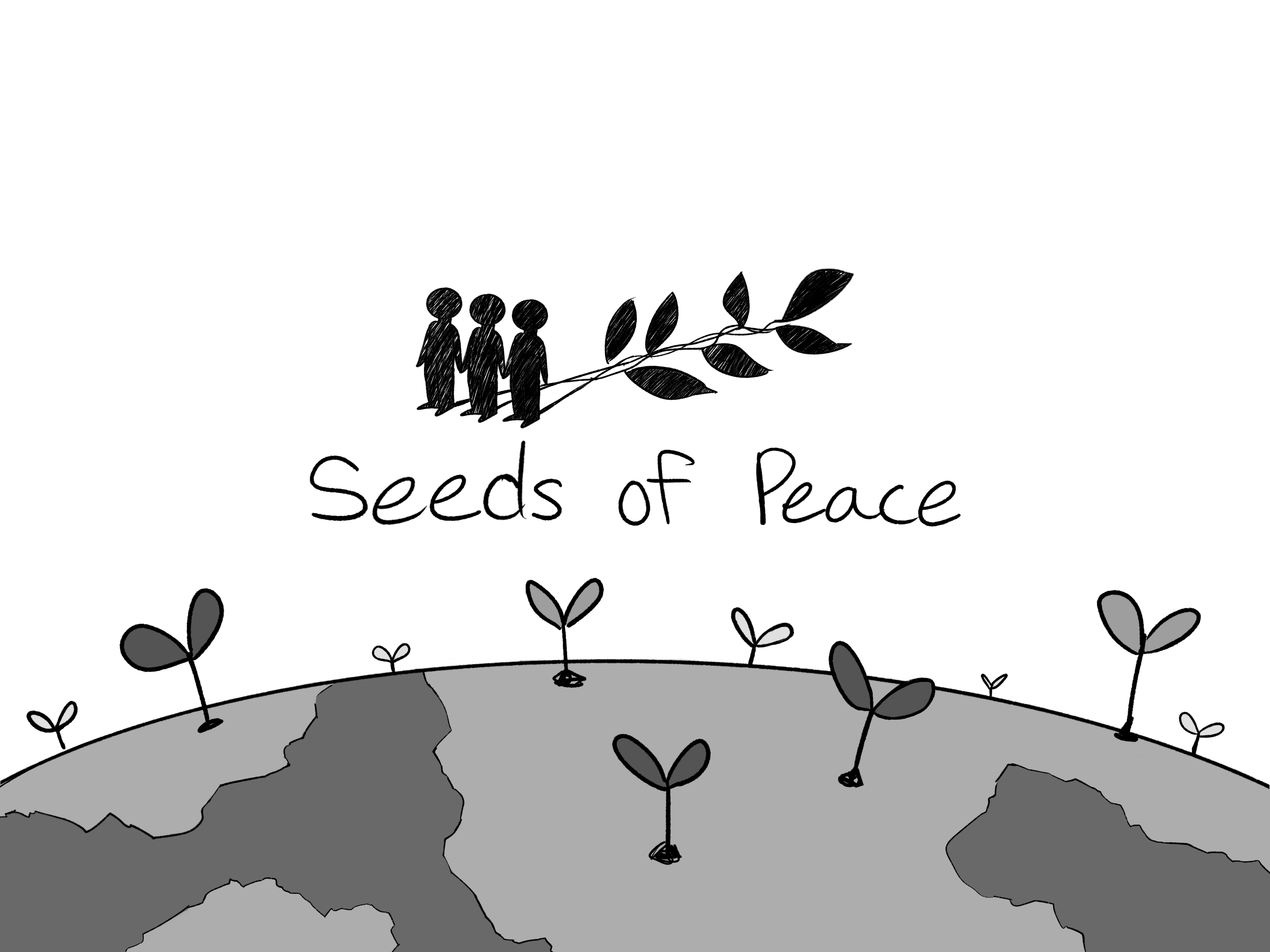On October 21, the international organization Seeds of Peace held an online assembly at PHS between 9:40 a.m. and 10:40 a.m. during a 60-minute homeroom day. The organization aims to cultivate leaders who work together across diverse backgrounds to create more equitable and inclusive societies. Across the world, the team works with students worldwide and engages in various dialogues designed to shift attitudes and perceptions, promote understanding, and build respect and empathy.
During their presentation at PHS, two speakers were featured: Ittay Flescher, from Israel, and Suma Qawasmi, from Palestine, who each shared their personal experiences living in the Middle East amidst the ongoing conflict. The event aimed to provide students with a better ability to enjoy meaningful dialogue with others on controversial topics.
“[We are here] to show you that, [even though] Suma and I don’t agree on a lot of things, we’re still friends, we work together, and we bring children, who are living this war and are talking to each other and trying to work out how to share Jerusalem in peace,” said Flescher.
During the meeting, Flescher and Qawasmi shared tools students can use to help them navigate through challenging conversations. In addition, they also gave insights into a few activities they do with the students at their camp and the importance of having these dialogues.
“The message is we, who are living in this conflict — and we have all the reasons in the world to not want to meet with each other — can maybe serve as role models to you [so that] you can also find ways to listen and have difficult conversations,” said Flescher. “It’s not talking for the sake of talking, it’s talking for the sake of building peace. And building peace means creating a circumstance where everyone has freedom, justice, and equality.”
In May, Princeton University became a focal point for student activism like other colleges nationwide. During the studentled “Gaza Solidarity Encampment” protest on Canon Green, which lasted for three weeks, students led sit-ins, rallies, and speeches, demanding the university divest from organizations associated with Israeli military efforts. Some students from PHS left their classes to participate in the university protests.
After the protests, Principal Cecilia Birge met with the PHS Jewish Students Club and the PHS Muslim Student Union, both of which shared a desire to communicate to understand each other’s perspectives and seek respect and understanding. Following her meetings with the clubs, Birge also organized a dialogue between some Muslim and Jewish teachers at PHS to better understand their viewpoints and how they handle and address differences in their community.
“[They] have been my intellectual and cultural support system as I navigated the complexities surrounding the encampment at Princeton University. I spent countless hours with them — listening to their stories, engaging in meaningful discussions, exploring different perspectives, and even challenging my own assumptions,” said Birge.
One of Birge’s major realizations was that a singular approach that intends to create an inclusive environment for everyone doesn’t always work.
“Both communities contain diverse viewpoints, which are often overlooked when issues are framed in oversimplified narratives of right versus wrong or good versus bad. These conversations highlighted the need to embrace nuance and complexity when addressing sensitive topics. What stood out most was the shared desire across both communities for peace, mutual respect, and dignity for all.”
With these findings, over the summer, Birge, Superintendent Kathie Foster, and Assistant Superintendent for Curriculum and Instruction Kimberly Tew, met with other organizations, including Seeds of Peace, that prioritize peace building. Birge discovered that the teams’ mission was similar to the school district’s goals for education, subsequently organizing an assembly for students and a panel meeting with teachers.
“We found their approach and philosophy are aligned with our district’s mission to ‘prepare all of our students to lead lives of joy and purpose as knowledgeable, creative and compassionate citizens of a global society,’ and that ‘our schools are places of care where every child is known, every culture valued, and where kindness and courage are modeled,’” said Birge.
In his activism, Flescher puts emphasis on the importance of caring about the current conflict and engaging in productive dialogue. Through Seeds of Peace, Flescher and his team aim to demonstrate to children that dialogue can foster peace, and that trust and friendships with different people can enable significant positive change.
“What we have been trying to do is to say that the ... present reality, which is horrifying, doesn’t need to be a blueprint for our future,” said Flescher. “We have the power to create a different future, and that starts with seeing the humanity in every person, especially those who differ from us.
